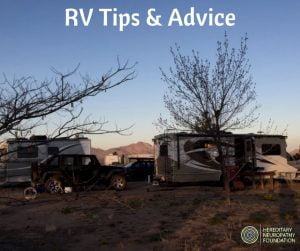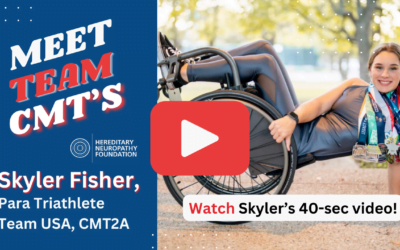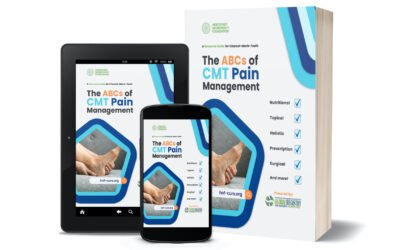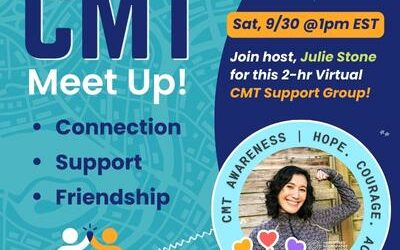 I am currently at Rusty’s RV Ranch (RV park), which is situated in the desert and surrounded by the Chiricahua Mountains, and conveniently located close to the Chiricahua National Forest.
I am currently at Rusty’s RV Ranch (RV park), which is situated in the desert and surrounded by the Chiricahua Mountains, and conveniently located close to the Chiricahua National Forest.
It’s a wonderful place to kick off my time out west, which I have been looking forward to ever since starting my journey. I love the openness, the climate, the lifestyle, and meeting all the wonderful people who share my love of life on the road.
Before I began my travels I did quite a lot of research as I didn’t know a thing about RV living or even whether being disabled would preclude me from enjoying RV living. Since I began my journey over three months ago, I’ve learned quite a bit more.
So I would like to take an opportunity to share some thoughts and tips for those of you considering, or may want to consider, going RV, either part-time or full-time (the assumption being that you have no experience with RVs).
1. Do your research:
Go online and read articles or watch YouTube videos from those who have taken to the road. RVillage.com is a good resource. Learn the downside as well as the upsides of living in an RV. Escapees RV Club conducts what they call an RV boot camp in conjunction with their annual RV rallies (this month in Tucson AZ). It’s through the boot camp and talking to experienced RVers that I determined RV life would work for me.
2. Downsize:
RVing probably represents a major change for you, as it did for me. If you are convinced this is the way to go, you will have to begin downsizing. Space is at a premium on RV’s and weight is a consideration with anything you bring onto your RV. RV’s have furnishings built into them so you will need to let yours go. You’ll need to be mindful of the smaller things you’ll need and want to have with you, such as cookware, clothing, and keepsakes. If you have a pet, you may have a wonderful travel companion – remember that your pooch or kitty will need time acclimating just as you will.
3. Choose an RV:
Determine what kind of RV you want based on such factors as number of people (is it just yourself or will you have a partner), whether you want all the comforts of home or are willing to be more minimalist, how much you’re willing/able to pay, and ease of driving. Have an open mind.
Avoid making assumptions. Initially, I didn’t think I would be able to handle more than a 25 foot rig with a Jeep in tow. 25 footers weren’t on the lot when I was shopping around for what I wanted, so I test drove a 30 foot and found it was just fine; the larger unit had a better floor plan and more tow capacity. Gently used, a good name like Winnebago, is a safe bet. Know the lingo and basic workings of an RV and spend time in the RV before purchase. Pretend to go about things as if you were living in it. Do a thorough search online for the best price and be willing to travel if necessary to get the RV you desire – you may save thousands of dollars!
4. Join RV clubs:
I belong to Passport America – they give 50% discounts at many RV parks. I’ve saved hundreds of dollars through PA. Escapees RV Club provides advocacy for RVers, a mail service (I use myRVmail), discounts, and advice on such matters as domicile (important for full timers). Good Sams provides discounts at Camping World (retail RV sales, service and supplies) and Flying J travel centers (gas, propane, dump fees). I just joined RV Singles, a large organization for social connections between singles who share an interest in RV travel.
5. Get apps for your devices:
Some apps come with a charge, but are well worth it. I frequently use Ultimate Campground that has some 30,000 public campsites.Allstay Camp & RV provides filters so you can quickly locate travel centers and the like. You’ll likely want to save your homepage links to your mail service and others. I have one for places to stay overnight, another for RVparkreviews.com that I use any time I’m searching for a privately owned (as opposed to public) park.
6. GPS:
You’ll want to purchase a GPS unit specifically made for RVs. Unlike those on cell phones, these are satellite-based and advise you ahead of time on steep hills, curves, bridges and other crucial information. Sometimes I use my cell phone GPS and my RV GPS together when I’m trying to find a restaurant while wanting to continue toward my ultimate destination.
7. Prepare!
You will feel nervous in the beginning and not everything will go smoothly, but the more prepared and open-minded you are the better. You can’t plan for every contingency and things are bound to go awry from time to time. In these instances I sometimes question what I’m doing, but those moments are fleeting. Part of the learning process is working through problems that arise. For those going full time, approach this for what it is – a lifestyle change and not a vacation. In addition to special places to see and things to do, you will always be in search of places to grocery shop, do laundry, get propane, or park for a night.
8. Be Safe:
This is especially important for women and those physically challenged. You want to have flares, a first aid kit, an extra supply of nonperishable food and water. Advise loved ones where you are, especially if you are going into the backcountry (recommended only for the experienced and more adventurous types). If you require special medical devices, such as grab handles for the shower, have these installed before beginning your journey. If you use braces or canes, as I do, have extras. I was glad I did as one of my braces broke.
9. Have a good insurance policy and road service plan:
Things will break or otherwise happen as with a tornado that came through when I was in New Orleans – some folks with heavily damaged RVs didn’t have insurance.Fortunately my rig sustained minimal damage but I don’t want to pay a deductible for repair. Also important is your health care coverage. You may need to make changes in your policy so that you can obtain out-of-network care (I utilize the VA but also continue to be followed by my civilian primary provider).
10. Follow your dream!
Remember, this is your dream. Millions of others are out there enjoying the RV experience and loving it, but some folks won’t understand and may try to dissuade you, especially if you have physical impairments. You know yourself best and it is best to reach out to others who have been on the road for their ideas and advice – fellow RVers are happy to help.
However, ultimately the decision is up to you. For me, I know I made the right decision and I’m enjoying the adventure of my life.
The information I covered is high-level and not meant to be all-inclusive. It may seem overwhelming and therefore a little discouraging with all you need to know to get started, but if you love to travel, have a sense of adventure and have an open mind, RVing might just be for you. It’s wonderful to experience all the interesting people you meet along the way, as well as incredible places you get to visit in your own “home”. So get out there and enjoy as I am, while I still can!
I hope this is been helpful. Please feel too contact me if you have any questions.













0 Comments